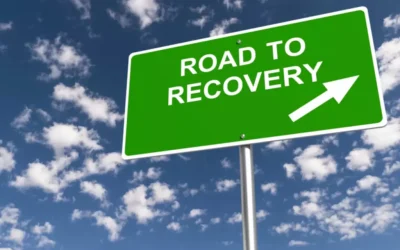Content
As the tension builds, one becomes at greater risk of moving into stage 2—mental relapse. Even after being sober for years, the potential for an alcohol relapse is always possible. People who relapse may feel guilt, shame and hopelessness. However, just because a relapse occurs doesn’t mean someone has failed recovery. Relapse can be part of the recovery process, and it can strengthen someone’s dedication to long-term sobriety if it occurs and is properly handled. 66% of all people in the United States who have been treated for alcohol use disorder will have at least one or more relapses in the year after they’ve completed substance abuse treatment.

If you do relapse, know that it isn’t the end of the world. With further treatment and dedication, you can maintain sobriety. In a national three-year study that surveyed people trying to recover from alcoholism, 38 percent of individuals with minor alcohol problems and 30 percent of people with moderate or severe alcohol problems were able to quit drinking. People who had severe addictions to alcohol or co-occurring disorders were less likely to successfully quit.
Addiction Treatment Programs
The main article addresses each of these questions to elucidate how stress increases the risk of alcohol relapse. To avoid chronic alcohol relapse and learn to manage and cope with your triggers in a healthier way, consider enrolling in an alcohol addiction treatment program or relapse prevention program. Sometimes attempting to avoid triggers at all costs is not the most effective way to maintain sobriety.
However, it takes work to stay in recovery, and even the hardest-working person can experience slips, lapses and relapses during the alcohol recovery process. Risk factors for relapse can be psychological, social, environmental, internal, and behavioral. Drinking is so prevalent and accepted in society and pop culture that many people who have alcohol use disorders don’t even realize they have a problem until it’s too late or their health starts to decline. With a bar in every town and liquor advertisements on television and even social media, alcoholism relapse triggers are especially difficult to avoid. Addiction is similar to a chronic disease which requires medical and psychological intervention. However, recovery from other fatal diseases does not carry the shame that addiction does.
Brief reportAlcohol relapse repetition, gender, and predictive validity
Relapse is a common stumbling block during the recovery process and does not mean that you should give up on becoming sober. 38% of all Americans with an alcohol use disorder still report drinking moderately. 13% of all people in the United States with an alcohol use disorder report not making any further efforts to engage in the treatment process once they have completed the initial treatment.
We understand what you’re going through, and we can help both you and your loved one bounce back from this relapse. We’ll help your loved one identify the reasons that led to relapse, develop healthy coping skills, and create a detailed relapse prevention Alcohol Relapse plan for moving forward. We offer recovery resources for you as well such as family therapy and family education so that you can heal alongside your loved one. You might consider addiction treatment as a way of learning relapse prevention.
Need help getting addiction treatment?
Imagine the consequences of what will happen, whether physical, psychological, or other, and decide if it is really worth it. You may not be able to stop the next day, and you’ll get caught in the same vicious cycle. However, certain food groups also have benefits when it comes to helping with the discomfort of withdrawal symptoms and detoxification.
A person has such bad memories of their alcohol use and are enjoying their recovery. Of course, it is always a great feeling when you are confident in your recovery, but keep in mind that anyone suffering from an AUD is subject to relapse. All it takes is being in the wrong place at the wrong time, or just one bad thought that leads to one bad decision to consume alcohol. That is why continuing group and individual therapies is a key component of your ultimate success. 34% of all Americans with an alcohol use disorder will have an least one or more physical relapses during the process of recovering from alcohol abuse disorder. 62% of all Americans with an alcohol use disorder will have an least one or more mental relapses during the process of recovering from alcohol abuse disorder.
Study design, details of the publication, the number of subjects, and baseline characteristics of study populations were extracted including patients with https://ecosoberhouse.com/ and predictive factors of alcohol relapse after LT. Post-transplant alcohol relapse occurred in about one-fifth of patients who underwent alcohol-related LT. Psychiatric comorbidities represented the strongest predictor of alcohol relapse. Psychiatric comorbidities monitoring and pre-LT alcohol abstinence for at least 6 months may decrease alcohol relapse after LT. Under no circumstances blame your loved one for relapsing. Alcoholism is a chronic and relapsing condition, with between four and six in ten people in recovery relapsing at least once.

